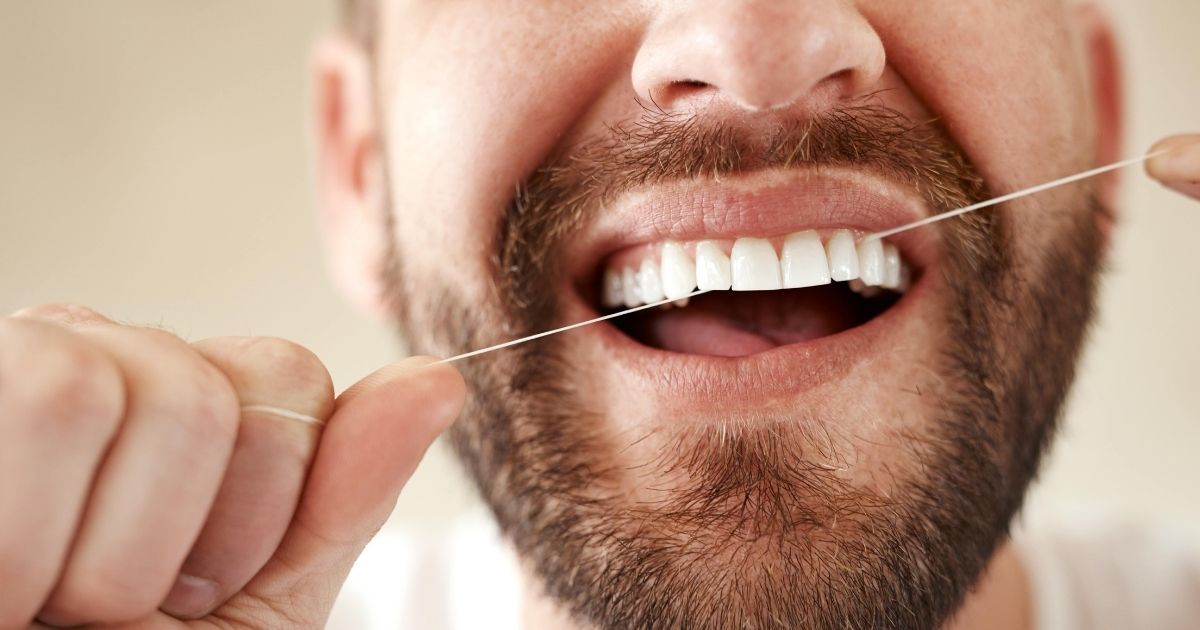At what age do adults start losing teeth?
What age adults start losing teeth depends on lots of factors, but tooth loss statistics provide some useful insights.
Although a full set of adult teeth is technically made up of 32 teeth, data from the Office for Health Improvement shows that adults in the UK have an average of 25.
That means the average adult has lost seven teeth, whether through tooth extraction, periodontal disease, or another cause. Figuring out at what age tooth loss happens means diving deeper into the statistics.
Reading time: 5 minutes

At what age do teeth fall out adults in the UK
A study carried out by The Office for Health Improvement in 2021 includes data that shows what percentage of adults in each age group have 21+ natural teeth and 28+ natural teeth, as well as highlighting the mean number of teeth for each age group. This study takes into consideration permanent tooth reports, with baby teeth in most cases having already fallen out and been replaced with permanent teeth at this point.
We’ve added an extra column to show the mean number of lost teeth for each age group, subtracting the mean number of teeth from 32.
| Age group | 21+ natural teeth | 28+ natural teeth | The mean number of teeth | The mean number of lost teeth |
| 16 -24 | 92% | 81% | 27.5 | 4.5 |
| 25-34 | 94% | 78% | 28.0 | 4.0 |
| 35-44 | 92% | 67% | 27.1 | 4.9 |
| 45-54 | 90% | 56% | 26.2 | 5.8 |
| 55-64 | 84% | 41% | 24.7 | 7.3 |
| 65-74 | 72% | 28% | 22.6 | 9.4 |
| 75+ | 52% | 14% | 19.0 | 13.0 |
This is in line with other studies measuring average tooth loss by age in the UK, including one that used 1998 data which shows very similar rates of tooth loss in each age group.
So, based on the statistics, the answer to the question ‘What age do teeth fall out in adults?’ is essentially ‘at any age’. However, adults are most likely to lose their teeth as they get older, with the highest rates of missing teeth occurring in people over the age of 55.
However, it’s important to add some context to the data. According to the NHS, the removal of wisdom teeth is one of the most common surgical procedures carried out in the UK, with some sources saying up to 80,000 people a year have wisdom teeth removed. That’s likely to be a significant contributing factor to the number of missing teeth, especially in younger age groups when losing non-wisdom teeth through disease or decay is less likely.
The main causes of tooth loss in adults
‘At what age do adults start losing teeth’ might be an answerable question by using data to understand population-level trends, but not everybody follows the same pattern of tooth loss. That’s because there are lots of reasons for losing teeth, not all of which will affect every adult.
These are some of the main causes of tooth loss in adults in the UK, with a brief explanation of each one:
- Periodontal disease: Periodontal disease, also called gum disease, is an infection in the gums caused by bacteria in plaque. If left untreated, it can cause bleeding gums which recede, loosening teeth which may eventually fall out. Almost half of all adults in the UK have some form of periodontal disease, but it’s most common in 60+ year-olds.
- Wisdom tooth removal: Wisdom teeth (or third molars) are typically the last teeth to come through in adults, with these teeth starting to cause some problems for many. They’re removed at relatively high rates because they can emerge at an angle or only partially emerge if there isn’t enough room left in the mouth for them.
- Tooth trauma: There are a range of ways teeth can be damaged through trauma, including tooth grinding, accidents that cause chips or cracks, and even using teeth to open bottles. Damage caused by trauma can result in teeth having to be taken out.
- Tooth decay: Cavities caused by untreated tooth decay can damage the pulp in the centre of the tooth, often resulting in ongoing pain. In cases like these, tooth removal or root canal treatment is often recommended as a solution.
While some causes of tooth loss in adults, like impacted wisdom teeth or accidental damage, are largely unavoidable, other causes can be mitigated to prevent the chances of losing teeth.
Overall health & immune system also have links and impact on the rate of tooth loss for adults, including those in the UK. Various health conditions and immune responses can influence oral health, leading to increased rates of tooth loss.

How to prevent adult tooth loss
When adults lose their permanent teeth, they don’t grow back. Taking care of your teeth to prevent tooth loss is therefore the best way to maximise the chances of maintaining as many natural teeth as possible into old age.
The following good oral hygiene practices are recommended:
- Brush your teeth twice a day
- Floss between your teeth every day
- Cut down on sugar and alcohol intake
- Visit your dentist for regular check-ups
Tooth replacement options: An overview
Even if you take proper care of your teeth as an adult, there’s still a risk that you’ll lose some to one cause or another. However, that doesn’t mean you have to go on with missing teeth. There are several effective tooth replacement treatments to consider, all of which can restore a full smile.
Dental implants
Dental implants are artificial tooth roots, usually made of titanium, that are inserted into the jawbone to act as a mount for replacement teeth. They look, feel, and work just like natural teeth and are extremely durable, capable of lasting decades. There are solutions for both single-tooth dental implants and full-mouth dental implants, so it’s a viable option no matter how many teeth you’ve lost.
Bridges
Dental bridges are custom-made prosthetic devices that are used to replace missing teeth by anchoring artificial teeth to adjacent natural teeth or implants. They restore the look and function that’s lost through missing teeth, and can prevent adjacent teeth from ‘drifting’. However, they’re generally not as long-lasting as dental implants.
Dentures
Dentures are removable prosthetic devices designed to replace missing teeth and surrounding gum tissue. They come in two main types: complete dentures to replace a full row of teeth and partial dentures to replace individual missing teeth. Dentures can restore the look of a full mouth of teeth and regular chewing function, but they have some downsides compared to dental implants.